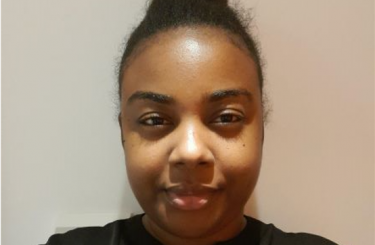Where do I fit into the funding sector?
I applied to London Funders via the 10,000 Interns Foundation. While the funding sector differs from my regular programming as a medical student, I was drawn to the funding world for its unique insights into the nonprofit world. This opportunity intrigued me as it promised to broaden my understanding of philanthropy and further cultivate facets of my identity that extend beyond the boundaries of a medical profession.
Prior to London Funders, I had my first taste of funding and grantmaking processes as the Co-Founder and Director of The Black Excellence Network CIC. The Black Excellence Network is a social enterprise that aims to widen participation of Afro-Caribbean students in higher education and competitive career spheres in the UK through mentorship and consultancy services. I co-founded this organisation at the age of 18 with the intention of creating a more equitable system in which Black students had the guidance and support required to access traditionally inaccessible avenues. As a grassroots initiative, securing funds posed considerable challenges - these difficulties were often rooted in a lack of experience in how to acquire funding opportunities and attain financial sustainability. Coupled with this, I work with Melanin Medics - a charity that increases the representation of Africans and Caribbeans within medicine.
Working with these grassroots organisations has given me some real insight into service delivery and the imperative of remaining connected with the communities benefiting from an organisation's services. Having spent the last six weeks at London Funders, I’ve gained valuable insights into the intricacies involved in providing resources to grassroots organisations, charities, and social enterprises and how to do this in a way that allows organisations the flexibility and trust to deliver for the communities they support.
As a social entrepreneur, I was really curious about how things work behind the scenes and how grassroots organisations and charities connect with funders and investors.
What was I hoping to learn before starting?
In preparing for my time at London Funders, I had a checklist of things I aimed to take away from the experience. One big thing was wrapping my head around the ethical principles driving philanthropy and funding. In instances where the origins of a grantmaker’s funds trace back to exploitative or harmful practices, I was interested to know how intentional these funders were in making reparations or aligning their present charitable practices with their historical foundations.
Pursuing this internship at London Funders is more than just swapping out a stethoscope for something else. As a social entrepreneur, I was really curious about how things work behind the scenes and how grassroots organisations and charities connect with funders and investors. I wanted to understand what it's like for the people getting the grants versus the ones giving them, and I was keen to figure out how power and expertise play out in these relationships.
Change happens when people and systems are up for it
What have I learned? … What comes next?
Having now spent 6 weeks with the amazing team at London Funders, I have gained invaluable insights that have got me thinking more about what’s next. First off, the team and company culture here stood out as pillars of collaboration, openness, kindness and flexibility and this helped to foster an environment where ideas were able to flourish amongst the team. This made me realise how important this kind of culture is. London Funders as an organisation is vital in advocating for responsible funding efforts and encouraging the drive for meaningful change. One of my major takeaways from my time here is that change happens when people and systems are up for it - the labyrinth of red tape and bureaucracy can often impede progress. For example, The London Community Response and the Propel collaboration both set up by London Funders reinforced the importance of delving into the core purpose driving our endeavours in the non-profit sector, and having that be the major focus.
I’ve figured that tackling problems head-on and planning for the long run with intentionality trumps reactive ‘firefighting’ in the funding sector, especially because this space is an ever-evolving landscape. There’s also so much power in entrusting the communities to take the lead and the execution of ‘collective power’ between funders and funded organisations can be transformational - there’s strength in unity. Acknowledging that there are big issues with wealth, power imbalance, and equity, is the first step and then we can start figuring out how to make things right. Giving communities the tools in a sustained way to make change is how we level the playing field. When there are statistics such as “0.1% of foundation giving globally goes to black women & gender expansive people” - we have to consider the reason behind that and work out how to collectively improve.
Another learning point for me is that positive change through funding transcends all sectors, from healthcare to arts and culture. I used to think of funding as a separate entity, but now I see how it's all connected. My internship here has kindled a desire to dive further into the funding world and intertwine this with my current and future role in healthcare. Looking ahead, I'm excited to be part of having an impact on the world through a combination of healthcare, social entrepreneurship and now the funding sector.

